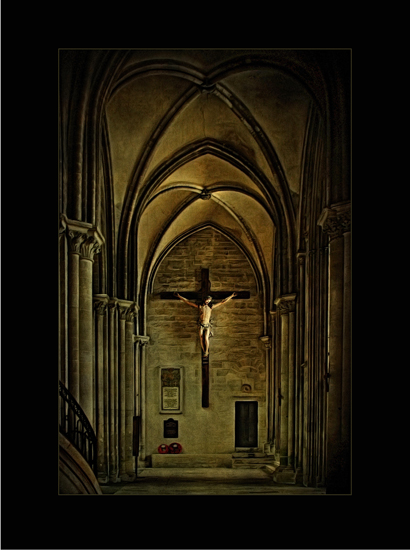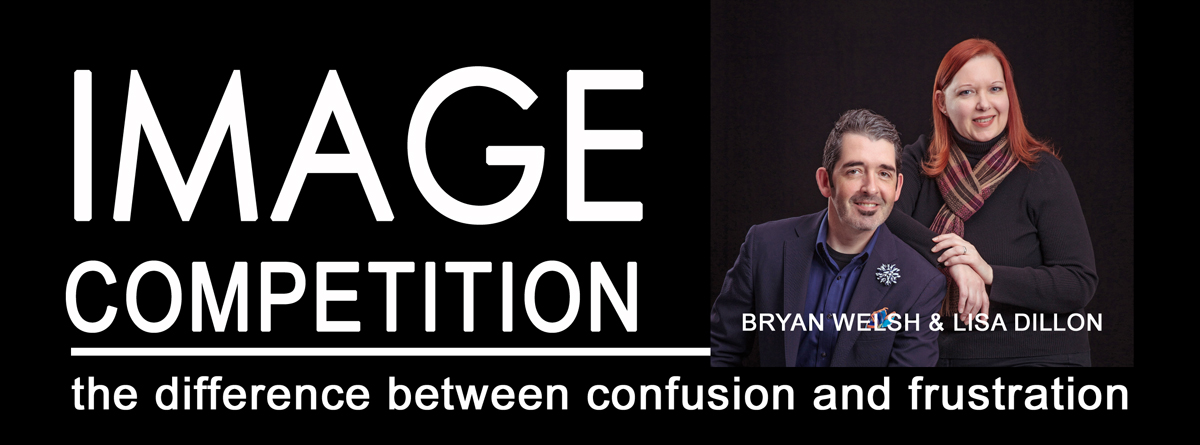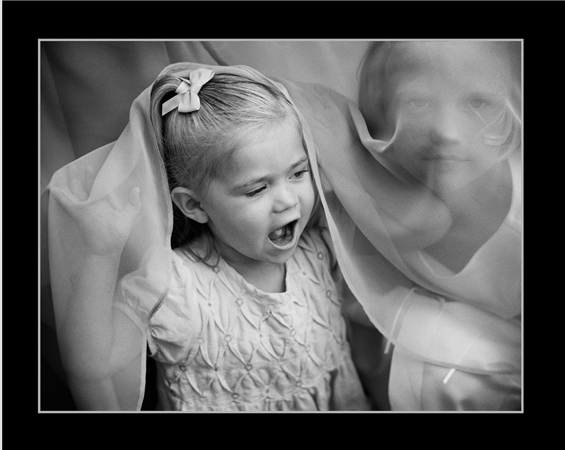by Bryan Welsh & Lisa Dillon
Image competition and the pursuit of merits and association degrees is a rewarding though sometimes troubled endeavor. It’s going to be hard—we all know that—and there are going to be situations that come up that make you want to give up. However, like a lot of things that you are working to achieve, it’s what you do once you are knocked down that matters most.
With the hyper connectivity we now enjoy with the internet, we are able to share details about our disappointments that in the past we would have kept to ourselves or perhaps only shared with a close group of friends. However, with social media, we also now have the opportunity to vent in very public ways. Here are some recent observations about Image Competition venting that might be useful to address.
First, your results may vary. Have you ever had an image receive scores from different judges or even different panels of judges that receive different scores? We hear from many that competitors don’t understand how this can happen given that each image is judged on the 12 Elements of a Merit image. They don’t understand why the score isn’t always the same regardless of the judge or panel. Intellectually we know art is subjective and beauty is in the eye of the beholder but emotionally we want our art to be seen as unique and thus rewarded with glowing reviews. But this is not always the case, for one very simple reason… the human factor of the process.
Each judge filters what they see through their own life experience, which is why different panels may score things differently. This variation translates to scores that can sometimes be dramatically different from one panel to the next. One image scored 100 in a recent competition but at another competition it scored in the mid-80s. You ask how this can be.

The answer is quite simple—each panel saw different strengths and some found weaknesses of the image and gave it the score they felt appropriate. As Jeff Dachowski, a PPA approved juror, mentioned online recently, “Which panel got it right? Maybe it was a mid-80s image if it was judged ten times by ten different panels or maybe it would score in the nineties 8 out of 10 times. That’s a hard one to answer. Why do we always assume the panel that scored it higher is better or gave it the correct score? We would argue both got it right. Both panels used the process to come up with their best score for that image on that day. The process is the best we have and nothing is perfect. However, this process has stood the test of time and we believe one to rely on. Trust the process and while results may vary in the end we contend your images will be scored as they should be with fairness, integrity and care by people who are doing the very best job they can given the fact that it’s subjective and imperfect.”
Some folks will vent on social media, “How can this be that I score great in one competition and don’t even merit in another competition with the same image? I’m so confused!” Are you sure you are not just disappointed and frustrated rather than confused? If you take some time to truly understand the process, we believe you can take all the mislabeled confusion out of your mind and find a much better place to spend your energy.
Don’t get us wrong—it can be frustrating. No one wants to hear that an image they poured their soul into isn’t a merit image. It’s ok to be frustrated! You have worked so hard to get everything just right and your image didn’t get the score you wanted. The important thing to glean from this, in our opinion, is who to be frustrated with. We contend that if you channel the frustration inward and use that energy to increase your skills, you will get better at creating images and your scores will reflect that.
Here is a little secret—the best result you can have from image competition isn’t receiving merits or degrees—it’s becoming a better image maker. When you are frustrated, it’s an opportunity. You have an opportunity for growth and improvement. Unfavorable scores push you to work harder so that eventually you’ll be creating images with a level of skill that can only be honed through the fire of disappointment.
One juror at District recently expressed that it’s ok to feel disappointment but please don’t channel that anger toward the judges and blame them. Jurors are always hoping to award a merit! To become a juror takes a lot of time and training and sacrifice. No one enters the juror training program hoping to dash spirits and ruin lives.
Becoming a juror is truly a labor of love—you must be passionate enough about photography and photographic education that you are willing to spend your own hard-earned dollars to acquire the training necessary and then be humble enough to be evaluated by approved jurors over and over until you are approved. And then the evaluations continue! It is through much personal sacrifice and time away from family and their business that jurors are trained and approved. Please understand that when a juror scores your image, they are looking for ways to reward the maker, not the other way around.
We hope confusion is not your mind-set now that you understand the process. Understand that frustration and disappointment are fleeting and then turn that emotion into determination to excel. One juror recently equated this to the 5 stages of grief… (1) Denial, (2) Anger, (3) Bargaining, (4) Depression, and (5) Acceptance. Maybe we should write a book on the 5 stages of Frustration in image competition—there are a lot of similarities and we think it would be a best seller amongst the competition crowd. If you can channel that frustration and use it to your advantage as you create, we believe good will come from it.
In science, we look for things to match and be evidence based with repeatable results. Image competition is not science. It’s an art. But in the pursuit to give it meaning, we give it a method of order—the PPA 12 Elements of a Merit. We believe it’s the best system in the world and one we can rely on. Sometimes you will score well and sometimes you won’t. But as long as you are participating, you will get better and become the artist you aspire to be. Just don’t get caught in the trap of confusion on why the result may vary and understand that truly, the value of competition is in the process. The result is but a tiny fraction of the process of competing but because we like accolades, it’s the part we focus on the most. Let your focus be broad and the accolades will come.
 Bryan Welsh, Photog.Cr, CPP, is a second generation photographer from Hillsboro, Oregon, who is recognized for his creative stylized journalistic photography. He has taught throughout the nation and is an approved juror with the Oregon Professional Photographers Association. Bryan takes pride in helping aspiring photographers and enjoys following their success in image competition.
Bryan Welsh, Photog.Cr, CPP, is a second generation photographer from Hillsboro, Oregon, who is recognized for his creative stylized journalistic photography. He has taught throughout the nation and is an approved juror with the Oregon Professional Photographers Association. Bryan takes pride in helping aspiring photographers and enjoys following their success in image competition.
Lisa Dillon is a Master Craftsman Photographer and CPP from Portland Oregon. She is also an ASP member and a Fellow of Photography in Oregon. She is in her 14th year of business and specializes in high school senior and family photography. She is a an Affiliate Juror-in-Training, past president of the Professional Photographers of Oregon and currently serves on the board of directors for Oregon Professional Photographers of Oregon and as a PPA Councilor for the state of Oregon. Lisa mentors several young photographers and teaches classes on Image Competition, How to Be an Image Competition Judge and on High School Senior Photography. In her spare time, she likes travel the world, hike in the beautiful Oregon forests, read as many books as possible and cook (and eat!) delicious food, preferably for a crowd of friends and family. She is a mother of one daughter and now a grandmother of one adorable toddler girl.








